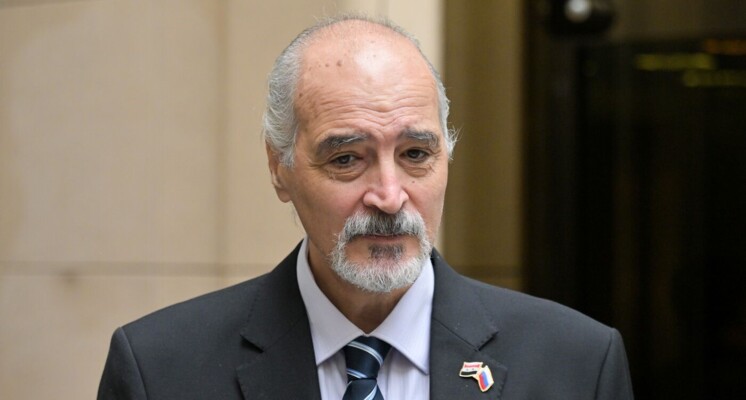Syrian Ambassador to Russia Says Damascus Government Seized His Property
By Kardo Roj
DAMASCUS, Syria (North Press) – Bashar Jaafari, Syria’s ambassador to Russia and longtime diplomat, announced on Monday that the Syrian government has confiscated his private real estate holdings in the capital, Damascus, in what he described as a politically motivated act.
In a statement posted to his social media accounts, Jaafari revealed that his properties—including a home in the upscale “Qura al-Sham” neighborhood (formerly known as Qura al-Assad) and another residence in the Qudsaya suburb—were seized by state authorities. The diplomat claims both properties were legally acquired and fully paid for using his personal savings and official salary.
“I bought the home in Qura al-Sham with money I saved from my diplomatic assignment in Indonesia back in 2002,” Jaafari wrote. He added that the Qudsaya residence had been acquired through long-term installment payments during his tenure as Syria’s Permanent Representative to the United Nations.
Jaafari, a seasoned figure in Syria’s diplomatic corps with over four decades of service, condemned the confiscation as “blatant political revenge” and a violation of his constitutional and human rights. He accused authorities of stripping a Syrian citizen of fundamental protections enshrined in national laws and international human rights charters.
“This is an assault on the sanctity of private property, a principle upheld by all civilized nations and explicitly protected under international law,” he wrote.
The ambassador emphasized that his role has been purely diplomatic, asserting that he never served in the Interior or Defense Ministries, nor in any political party or security apparatus. “I served my country abroad because that is the career I earned through merit and civil service exams 45 years ago,” he stated.
Jaafari is one of Syria’s most prominent diplomatic figures, having represented the country at the United Nations during some of its most turbulent years, including the height of the Syrian civil war and extensive international scrutiny over human rights violations. He is widely known for defending Syrian sovereignty and opposing foreign intervention, especially during debates around Chapter VII of the UN Charter.
His current posting in Moscow as Syria’s top envoy to Russia places him at the center of one of Damascus’s most critical bilateral relationships. However, the apparent internal friction suggested by the property seizure indicates possible shifts within Syria’s political elite.
While Syrian officials have not issued a formal response to Jaafari’s claims, his public disclosure points to deepening divisions or a possible reconfiguration of influence within the government.
The case has sparked broader concerns among Syrians over the sanctity of property rights, particularly in light of previous reports about property seizures targeting dissidents, refugees, and those perceived as politically out of favor. In recent years, laws such as Legislative Decree No. 10 of 2018 have raised international alarm over the state’s ability to repossess properties without transparent legal processes.
Analysts suggest that Jaafari’s public outcry could be a rare instance of internal dissent making its way into public discourse, especially given his historically loyal representation of Syrian state positions on international platforms.
The incident is likely to reverberate across diplomatic and political circles, potentially impacting Syria’s already fragile image among its allies and further complicating narratives around reconstruction, property restitution, and rule of law.

